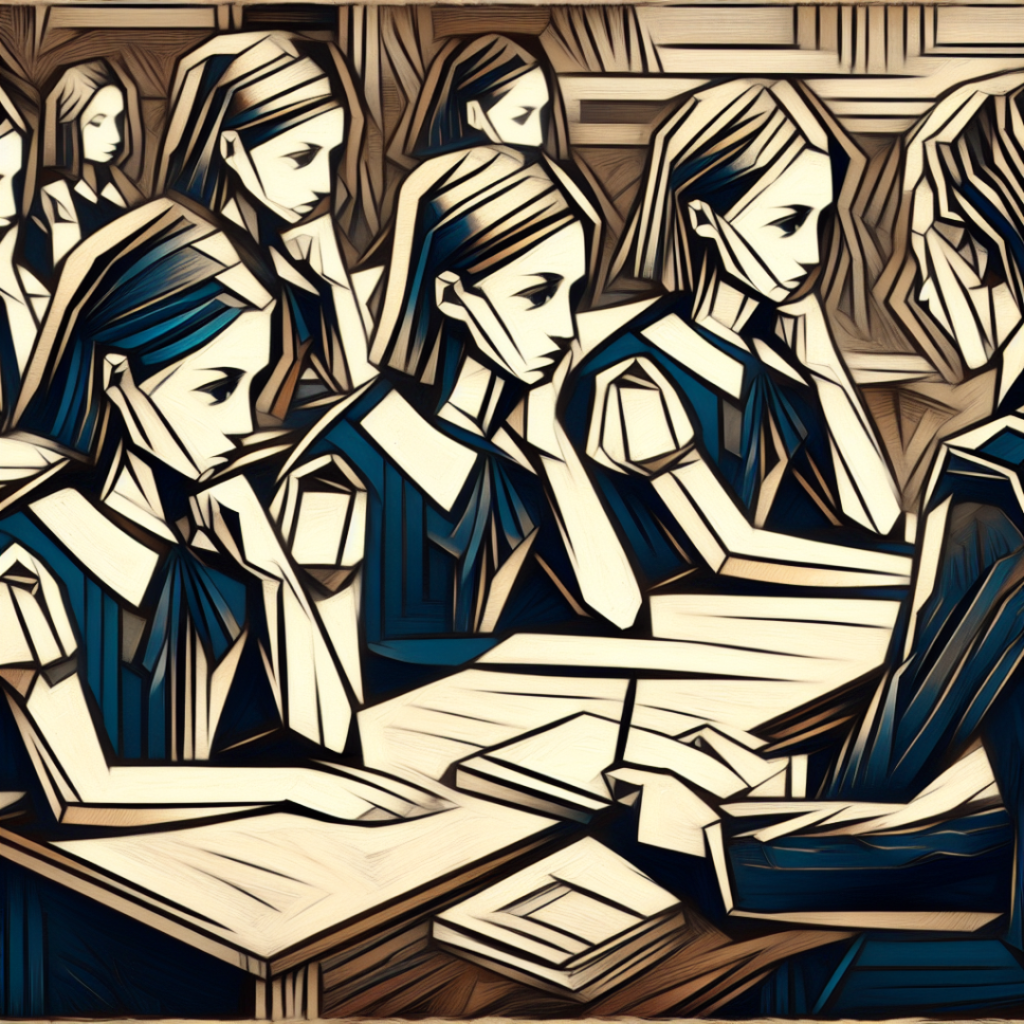When I was in middle school, I showed up to class one day without doing my homework. I rarely did homework because I just couldn’t be bothered to do it, and if a teacher didn’t regularly check, I didn’t see any point in doing it. However, this one day, a teacher who never checked homework suddenly asked us to show her our work. My brain immediately went into overdrive. What can I tell her? What family crisis can I invent? What could possibly have happened to my binder so I couldn’t bring it today? What other plausible excuse can I cook up?

As I was trying to settle on the most believable story, the teacher was getting closer and closer to my desk. She finally reached the girl sitting in front of me. I’ll call her Lisa. Lisa also did not do her homework, but instead of lying about it, she said, “I didn’t do my homework,” and blithely accepted the consequence, which was a detention.
My brain flipped upside down at this interaction. Lisa just admitted that she didn’t do what she was supposed to have done. She didn’t lie or make up any excuses. She just admitted that she hadn’t done her homework and accepted the consequences.
[Insert image of Shaney with her eyes comically popping out of her head.]
This did not compute. My fourteen-year-old brain did not know what to do with this information. But the teacher was coming closer to my desk and I had to make a decision. I didn’t have enough time to analyse my situation, but I really liked and admired Lisa, and something inside me made me say, “I didn’t do my homework either,” when I was asked.
I would like to be able to say that I accepted the consequences with finesse, as Lisa had done, but I did not. I was furious that the teacher had the audacity to give me — ME!!! — a detention. I’m a good girl! You can’t punish me! I get As and follow the rules. It’s not fair!
Actually, to be more precise, since I have had a few years to think about this, I think it’s more accurate to say that I was deeply ashamed, and that led to my fury. And that resulted in me serving the detention in body, but not in mind. Rather than working on my homework and reflecting on my actions, which is the whole point of the detention, I sat around and distracted the others in the room and intentionally DID NOT do my homework. It’s a miracle I have a nose at all these days for all the times I cut it off to spite my face.
What I did learn from that experience was to try to do whatever I could to not get into that kind of situation again, which is not really the full lesson. For example, I would try to do some of my homework in kind of a barely adequate way so it looked like I at least tried, or I would try to arrange circumstances so that, if I was asked, I could say something that was true, like “I was too busy”. I’m not proud of this. I am just admitting, however painfully, that I was not as good a person as I thought I was.
Fast forward to the present…
Over the past couple of years, I have been a part of a twelve-step program for food addiction. People have all kinds of pre-conceived (read: negative) ideas about twelve-step programs. I know that because I did too. But one thing that I think a twelve-step program gets right is the idea of making amends.
Here’s the basic idea. With the help of people who are there to support you, you spend some time thinking about all of the things that you have done in your life that hurt other people. It could be a lie that you told, or an action that you took, or a way that you made a person feel. It could be something that you didn’t do when you really should have done something. Any average person will likely come up with at least a few examples of times when they have not acted as their best self and that has resulted in causing harm — in larger and smaller ways — to someone else.
Then, again with the help of the people in the program, you start to make amends for these wrongs, which means talking to people you have harmed and apologizing for what you did. (There is more to it, and I don’t recommend that anyone embark on a voyage of amends-making without guidance from others, but that is the basic idea.) It is uncomfortable work, but it is an important endeavour, especially for addicts, and especially if you, like me, aim to chase serenity and want to live an authentic life.
An immediate effect of making an amends is that your relationship with the person in question tends to deepen and improve. However, the learning that happens as a result of making a series of amends with many different people is even more impressive: you start to recognize more quickly when you are acting outside of your own values, and you are able to make course corrections more quickly, and (relatively) easily.
I spent most of my life trying to be “good” by trying not to get in trouble. Over the past couple of years, I have changed my thinking on this. Rather than aiming for “good” by trying to avoid blame, I try to accept myself for who I am: a flawed human being, who like other humans fails, makes mistakes, gets defensive, lies, and tries to make myself look good. I used to HATE being wrong. I used to do whatever I could to prove that I WAS RIGHT. And GOOD. And I realize now that I was trying to “be good” or at least be blameless, but that didn’t lead to me being happy, or serene, or actually a truly good person.
I have learned through my program to admit when I am wrong. Oh, but it is hard for me! I have fifty years’ practice of not doing that. But now, I am quicker to notice when I am wrong, or on the wrong track, and I can actually admit it, which then leads me to try to figure out what I have to do to make things right. And the process of making amends has taught me to complete the cycle as quickly as possible, because it gets harder to do the longer you leave between the wrong act and the amends.
This is not something we are taught in school. I am not even sure it can be taught explicitly, or if it has to be experienced to be learned. But I do know that learning this point has brought me — and many other people — a great deal of serenity, so it’s a lesson worth trying to learn, by any means possible.
When you are wrong, admit it, and make your amends.
Rinse and repeat.
I will have to ask Lisa how she managed to learn this lesson forty years before I did…
Listen to this article as a podcast:
Shaney Crawford is the head of Tsukuba International School and a freelance “thinking coach” who specializes in working with people in leadership roles (including middle leaders), people who work in education, people who live in Japan, workaholics, perfectionists, and people who tend to overthink things. Of course, anyone who wants help moving their thinking forward is welcome to apply to think in partnership with Shaney.


